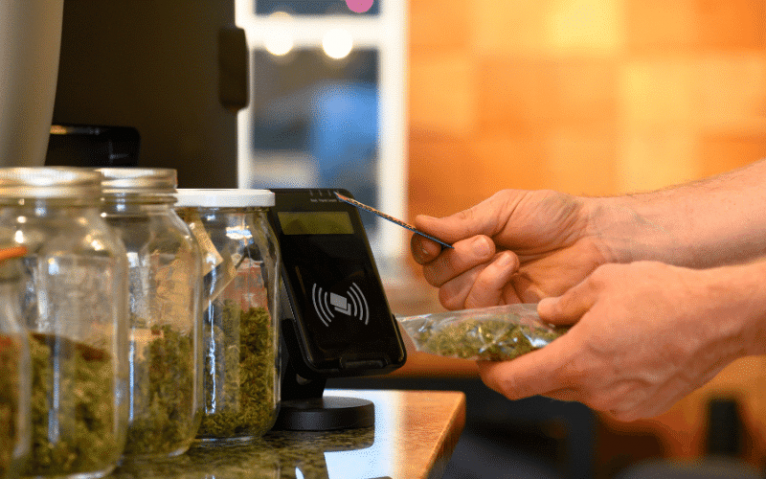With the rise of marijuana legalization in most states, marijuana dispensaries are popping up in every city. Currently, 28 states allow medical marijuana dispensaries, and eight states allow recreational dispensaries. Many argue that these dispensaries are safe, but could they be fueling addiction? But, medical dispensaries are nothing new, they’ve been around since the early 90s, but the rise in popularity has experts and people wondering.
What Are Drug Dispensaries?
A dispensary is usually an office, school, hospital, or organization that dispenses medications, medical supplies, and in some cases, medical or dental treatments. Traditionally, a pharmacist dispenses medicines as per prescription. Nowadays, most legal dispensaries give people access to marijuana and other drugs categorized as “safe.”
The Rise in Popularity of Marijuana Dispensaries
Since opening in 1992 in San Francisco, marijuana dispensaries continue to change the drug’s stigma. However, as legalization continues to spread across the country, the stigma continues to fade. Even though it took longer than expected, dispensaries are now widely available in almost all states.
Since 2014, recreational marijuana dispensaries became quite popular, as the legalization of the drug has moved forward. In 2015, the United States was spending over $5 billion on legal marijuana. By 2018 that number reached $10 billion. The legal marijuana sector is expected to reach $75 billion in worldwide revenue by 2030. However, those numbers are conservative ones; some experts believe that the numbers can be higher.
Medical Dispensary vs. Recreational Dispensary
Not all dispensaries work the same way. In a traditional medical dispensary, patients receive medication as per a doctor’s prescriptions or doctor’s orders. However, a recreational dispensary looks and feels much like a store.
Medical Dispensaries
You need to know that you have to be fully documented for medical dispensaries and come in with a medical cannabis card and your prescription. Here’s what else to know:
- Patients must be 18 years unless underage individuals struggle with a medical condition that allows them to have a medical marijuana card.
- You need to register yourself at the dispensary for regulatory and legal purposes.
- Medical dispensaries have waiting rooms and separating walls that allow privacy between customers.
- Medical dispensaries track purchases for reference and follow-up.
Recreational Dispensaries
The experience at a recreational facility is entirely different. Legalizing marijuana for recreational purposes, these recreational dispensaries serve as a store-front for pure marijuana products. Here’s what to know:
- Patients must be over 21 years old and have a valid ID to buy from a recreational dispensary.
- You can buy flowers, concentrates, edibles, topicals, and more.
- Budtenders might provide the necessary information and recommendations. However, they’re not doctors.
Pros and Cons of Marijuana Dispensaries
Although widely popular, there’s still a lot of new information about dispensaries. Some argue that these facilities increase criminality and promote the use of dangerous substances. However, one study showed that adding a dispensary leads to a reduction of 17 crimes per month per 100,000 residents, roughly a 19-percent decline in crime. Moreover, another study suggests that retail cannabis is linked with reduced opioid consumption by the general public. Some estimates agree that legal access to marijuana through dispensaries reduces opioid overdose deaths.
Pros
- Dispensaries can ensure purity, cultivation method, harvesting process, and more, making the product safer.
- State regulations demand that dispensaries comply with a selection of correctly labeled cannabis strains and cannabis-derived products to help you find the right one for your needs.
- Only adults with a valid ID can purchase products from these dispensaries.
- Offer a safe environment for people to buy cannabis products without fear of doing something illegal or visiting potentially dangerous neighborhoods.
Cons
- Recreational dispensaries don’t provide the right medical education about cannabis products.
- Although legal in many states, marijuana still has short- and long-term effects on the brain and nervous system.
- Marijuana products with THC do have a risk of abuse and addiction.
- Although marijuana is legal in many states, under federal law, it’s still classified as a Schedule I drug in the Controlled Substances Act, alongside drugs like heroin.
The Future of Marijuana Dispensaries
The truth is that under the right circumstances, marijuana maintenance can be helpful to many individuals. Above all, it’s essential to know the ups and downs of marijuana and its effects on the body. Many people are shocked to learn that marijuana can be addictive, mainly because it’s marketed as an alternative to opioids and other drugs.
For anyone with a health condition that could require painkillers, marijuana could be a safer option. But, please, discuss with your doctor the possibility of starting a medical marijuana treatment for your ailment. And as always, if you or someone you know might be struggling with substance dependence or abuse, contact the Lighthouse Recovery Institute to steer away from the path of addiction and get the right treatment today.









